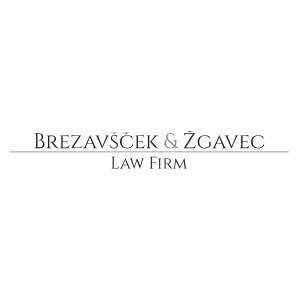Best Restructuring & Insolvency Lawyers in Ljubljana
Share your needs with us, get contacted by law firms.
Free. Takes 2 min.
List of the best lawyers in Ljubljana, Slovenia
About Restructuring & Insolvency Law in Ljubljana, Slovenia
Restructuring and insolvency law in Ljubljana, Slovenia is an area of legal practice focused on helping businesses and individuals manage financial distress, reorganize operations, or wind down affairs in accordance with the law. These legal processes are essential for protecting the rights of creditors, debtors, employees, and other stakeholders during periods of economic difficulty. Slovenian law provides specific pathways for both out-of-court and court-led restructuring, as well as formal insolvency proceedings such as bankruptcy, compulsory settlement, and liquidation. The goal of these legal procedures is either to help viable entities regain financial stability or to ensure an orderly and fair distribution of assets when financial recovery is not possible.
Why You May Need a Lawyer
The complexities of restructuring and insolvency law can be overwhelming, especially for those without legal training. A lawyer with expertise in this field can provide valuable guidance in the following situations:
- Your company is facing severe financial difficulties and you need to evaluate your options
- You are considering filing for bankruptcy or compulsory settlement in Slovenia
- You are a creditor trying to recover debts from a financially distressed company or individual
- You have received a notice regarding insolvency proceedings and are unsure of your rights or obligations
- You need assistance negotiating with creditors, banks, or suppliers
- You are concerned about personal liability as a company director or shareholder during financial distress
- You want to prevent or challenge the avoidance of certain transactions made prior to insolvency
- You need help understanding the implications of insolvency on employees, contracts, or ongoing litigation
Legal guidance ensures compliance with Slovenian laws and can protect your interests during a difficult time.
Local Laws Overview
Slovenia has comprehensive legislation governing restructuring and insolvency, primarily found in the Financial Operations, Insolvency Proceedings and Compulsory Dissolution Act (ZFPPIPP). Key legal aspects in Ljubljana include:
- Insolvency Triggers - Proceedings may start when insolvency is presumed, often due to the inability to pay debts or over-indebtedness.
- Types of Proceedings - Common types include voluntary or involuntary bankruptcy, compulsory settlement (prisilna poravnava), liquidation, and preventive restructuring.
- Automatic Effects - Starting proceedings can trigger moratoria on enforcement actions or freezes on assets.
- Obligations of Management - Directors and management have legal duties to file for insolvency at certain points, with penalties for late filing or non-compliance.
- Creditor Rights - Creditors have specific rights and deadlines to file claims, participate in decisions, and challenge certain transactions.
- Asset Distribution - Slovenian law dictates the order of priorities when distributing assets among creditors.
- Cross-Border Cases - Procedures exist for dealing with foreign creditors and group insolvencies, following both national and relevant EU regulations.
- Restructuring Tools - Tools such as capitalization of claims, debt rescheduling, and business transfer can be applied under court oversight.
Because laws and court procedures can be intricate and subject to change, legal expertise is highly recommended when navigating these issues in Ljubljana.
Frequently Asked Questions
What is the difference between restructuring and insolvency?
Restructuring aims to help a financially troubled business or individual recover by reorganizing debts or operations. Insolvency refers to the state of being unable to pay debts when due and generally leads to legal proceedings for resolving outstanding obligations, which can include bankruptcy or liquidation.
When must a company in Slovenia file for insolvency?
A company must file for insolvency without delay when it becomes permanently illiquid or over-indebted. Slovenian law places strict obligations on management to recognize and act upon these conditions.
Can an individual file for bankruptcy in Ljubljana?
Yes, individuals in Slovenia may initiate personal bankruptcy proceedings under specific legal conditions. The process provides mechanisms to deal with overwhelming personal debts and allows for possible new beginnings after the procedure concludes.
What is compulsory settlement (prisilna poravnava)?
Compulsory settlement is a court-supervised restructuring procedure aimed at enabling debtors to avoid bankruptcy by reaching a binding agreement with creditors, typically involving partial payment and rescheduling of debts.
What protections do creditors have in Slovenian insolvency proceedings?
Creditors are entitled to file claims, challenge debtor actions, vote on proposals, and receive a proportionate share of available assets. Deadlines and procedures apply, so creditor involvement should be active and timely.
How long do insolvency proceedings typically last?
The duration varies based on the complexity of the estate and the chosen procedure. Some restructurings can be resolved in a few months, while larger or more contested insolvencies may last several years.
Can I restructure my debts outside of court in Slovenia?
Yes, out-of-court restructuring is possible if all key stakeholders agree. However, court involvement provides greater legal certainty and can impose solutions on dissenting creditors.
What happens to employees when a company goes through insolvency?
Employees’ rights and claims are protected as much as possible. Wages owed are generally given priority, and the Employment Service of Slovenia may provide some payments for unpaid wages up to a certain amount.
Are company directors personally liable for company debts?
Directors may become personally liable if they breach their legal duties, such as failing to promptly initiate insolvency proceedings or acting improperly during the period leading up to insolvency.
What should I do if I receive a notice about insolvency proceedings?
You should promptly seek legal advice to understand your rights and obligations, file any claims within the deadlines, and participate appropriately to protect your interests.
Additional Resources
If you need information or support related to restructuring and insolvency in Ljubljana, consider contacting:
- Local Law Firms specializing in insolvency and restructuring
- Ljubljana District Court - the main venue for insolvency proceedings
- Slovenian Bar Association - for referrals to qualified lawyers
- Agency of the Republic of Slovenia for Public Legal Records and Related Services (AJPES) - provides information on insolvency proceedings and official publications
- Employment Service of Slovenia - for employees’ rights and support during employer insolvency
- The Ministry of Justice of Slovenia - policy, forms, and legal framework details
Next Steps
If you are facing financial distress or are affected by someone's insolvency in Ljubljana, take these steps:
- Seek timely legal advice from a specialist in restructuring and insolvency
- Gather all relevant documents and information concerning your situation or claims
- Act quickly, as Slovenian law sets strict deadlines for many insolvency-related actions
- Contact a local lawyer or the Slovenian Bar Association for a referral to a qualified legal representative
- If you are an employee, creditor, or other stakeholder, ensure your interests are represented during any legal proceedings
Early professional guidance can help protect your rights, minimize losses, and outline all available options for recovery or resolution under Slovenian law.
Lawzana helps you find the best lawyers and law firms in Ljubljana through a curated and pre-screened list of qualified legal professionals. Our platform offers rankings and detailed profiles of attorneys and law firms, allowing you to compare based on practice areas, including Restructuring & Insolvency, experience, and client feedback.
Each profile includes a description of the firm's areas of practice, client reviews, team members and partners, year of establishment, spoken languages, office locations, contact information, social media presence, and any published articles or resources. Most firms on our platform speak English and are experienced in both local and international legal matters.
Get a quote from top-rated law firms in Ljubljana, Slovenia — quickly, securely, and without unnecessary hassle.
Disclaimer:
The information provided on this page is for general informational purposes only and does not constitute legal advice. While we strive to ensure the accuracy and relevance of the content, legal information may change over time, and interpretations of the law can vary. You should always consult with a qualified legal professional for advice specific to your situation.
We disclaim all liability for actions taken or not taken based on the content of this page. If you believe any information is incorrect or outdated, please contact us, and we will review and update it where appropriate.

















